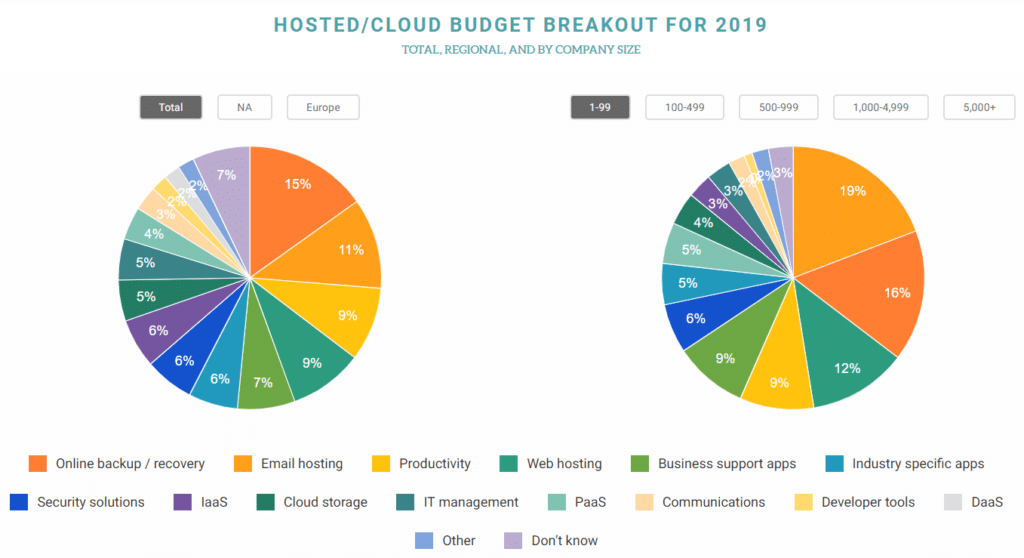In a data driven society, more and more enterprises and relying on the cloud to enable their digital transformation. In a recent report, Gartner shows that the cloud market is projected to reach a staggering $206 billion in 2019, from $175 billion in 2018 and $145 billion in 2017. Let’s see more of what’s in store for 2019 in the cloud world.
Cloud Services will grow exponentially
Organizations are choosing Infrastructure as a Service (IaaS), Platform as a Service (PaaS), and Software as a Service (SaaS) to support their business operations. It’s the simplicity and flexibility that made such services so popular and their adoption is expected to keep growing significantly. Gartner predicts that Public Cloud revenue will grow 17.3 percent in 2019 to a total of $206.2 billion, with infrastructure services (IaaS) being the fastest-growing segment of the market (27.6 percent growth).
“The increasing dominance of the hyperscale IaaS providers creates both enormous opportunities and challenges for end users and other market participants,” said Sid Nag, research director at Gartner.
Hybrid Cloud Solutions will be a Top Choice
The public cloud is not a one-size-fits-all type of solution and moving everything to the cloud can be a daunting task for organizations that have specific requirements. The Hybrid Cloud model offers a transition solution that mixes the existing on-premises infrastructure with public cloud and private cloud services. This way, companies are able to transition to the cloud at their own pace while being flexible and efficient.
Backup and DR will be a major concern
According to the 2019 State of IT report conducted by Spiceworks, Backup and DR (disaster recovery) solutions are allocated 15% of the cloud budget, which is the highest allocation, followed by email hosting and productivity tools. This significant percentage reflects the shared responsibility model that Public Cloud providers operate on. Public Cloud providers, such as Amazon Web Services (AWS), Google Cloud or Microsoft Azure are responsible for the availability and security of the infrastructure, while the customers are in charge for their data protection and compliance.

Automation will be indispensable
With the cloud adoption growing at unprecedented rates, organizations will have to manage more and more applications and data in the cloud, turning sysadmins jobs into real time-consuming and repetitive tasks. Companies of all sizes will be looking to manage their cloud architecture with tools that can automate different processes. Automation will simplify cloud administrators’ jobs by saving costs and time and eliminating manual processes such as sizing, provisioning or backup jobs.
What about GDPR and Security?
Technology empowers businesses with unlimited possibilities for innovation, but security is still a concern that is often neglected. Security now requires even more attention with the introduction of the General Data Protection Regulation (GDPR) and compliance in the cloud is rather complex. Yes, GDPR will still be a thing throughout 2019 and companies must assure their data practices are both safe and compliant.
Final thoughts
Cloud computing growth continues to accelerate as executives across all industries and company sizes are acknowledging the benefits it brings to their businesses: easy deployment, scalability, flexibility or cost savings. Still, it is paramount for cloud infrastructures to be complemented with proper security and backup solutions to keep data safe.
Are you looking for an AWS Data Protection solution?